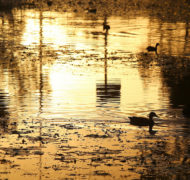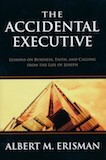Work-Life Balance vs. Work-Rest Ratio
Blog / Produced by The High Calling
Over thirty-seven million hits. That’s how popular the topic “work-life balance” is. Search it in quotes, with or without the dash, and you’ll find that this is what’s on people’s minds. The ongoing competition between work (our jobs, where we make our money) and life (that sweeping term meant to encompass everything ranging from spending time with spouse and kids to favorite hobbies and sleep) soldiers on.
I was at a leadership conference recently—a women’s leadership conference, of course; conferences attended primarily by men are not addressing the issue of work-life balance—where the speaker talked about a “work-life wobble” rather than “work-life balance.” Her point was that we will never find that perfect equilibrium where the scales carrying work and life are evenly aligned. So, instead, we accept that it will be a wobble, and we just have to make sure we’re not always skewing on one particular side, but rather erring on either side equally. I appreciated where she was going, and a big part of me resonated with it.
That said, I have trouble with the metaphor, be it balance or wobble. My life cannot be neatly divided into the parts that are “work” and the parts that are “life.” I love my work and usually derive a great deal of enjoyment from it, and sometimes my work allows me to do things that would usually be placed on the “life” side—surfing, for example. Likewise, even when I am engaging in something that would be labeled “life,” I am still, sometimes, working. On my recent anniversary weekend getaway with my husband, for example, I stayed in bed after breakfast reading commentaries in preparation for a sermon I am preaching this month. He researched properties in the Vancouver neighborhood where we were staying, ever the curious real estate developer.
Where does “work” end and “life” begin? For me, they are very often interwoven, one thread supporting the other. As a communication professional, for example, my time connecting with friends on Facebook is often helpful research for clients. As an actor, watching a film with my husband is also scene study. The fragmented demarcations, the simplified labels that distill some activities to work and some to life, don’t work for me.
I don’t think they’re meant to. What if our growing obsession with “work-life balance” began when we, as a culture, stopped giving proper consideration to the “work-rest ratio” that is such an integral component of our design as humans made in the image of God? It was written into the first creation narrative in Genesis and then recapitulated throughout the rest of the Bible. Over and over, we are commanded to not only cease our working, but to commence our resting.
We were not created to work non-stop, nor were we created to have equal—i.e. balanced—time at work and rest. We were created to work well and rest well in a ratio of six-to-one. The real issue is that we don’t know how to rest.
How many of us actually spend one day a week at rest?
Our problem is not that we are working too much. Our problem is that we are not resting well, giving our bodies and minds and spirits time and space to breathe. We spend our days off shuttling around to soccer games and Costco. We while away the weekend attacking household chores and “catching up” on whatever fell behind during the time we were “at work.” And then we wonder why we feel out of whack.
Out of sync.
Out of balance.
If you are someone who, like me, has struggled with this phenomena we call “work-life balance,” let me suggest that you start by considering this question: Am I resting well? Am I making time, a full day once a week, to simply be at rest? No chores, no checklists, no errands, no “let me just quickly check my...” but actual life-giving rest and relaxation? I believe this is the key to what we are all in search of: not work-life balance, but the good, old fashioned work-rest ratio handed down to us from our Creator who knew that on the seventh day, we are not simply to stop working, but we are actually to start resting.








